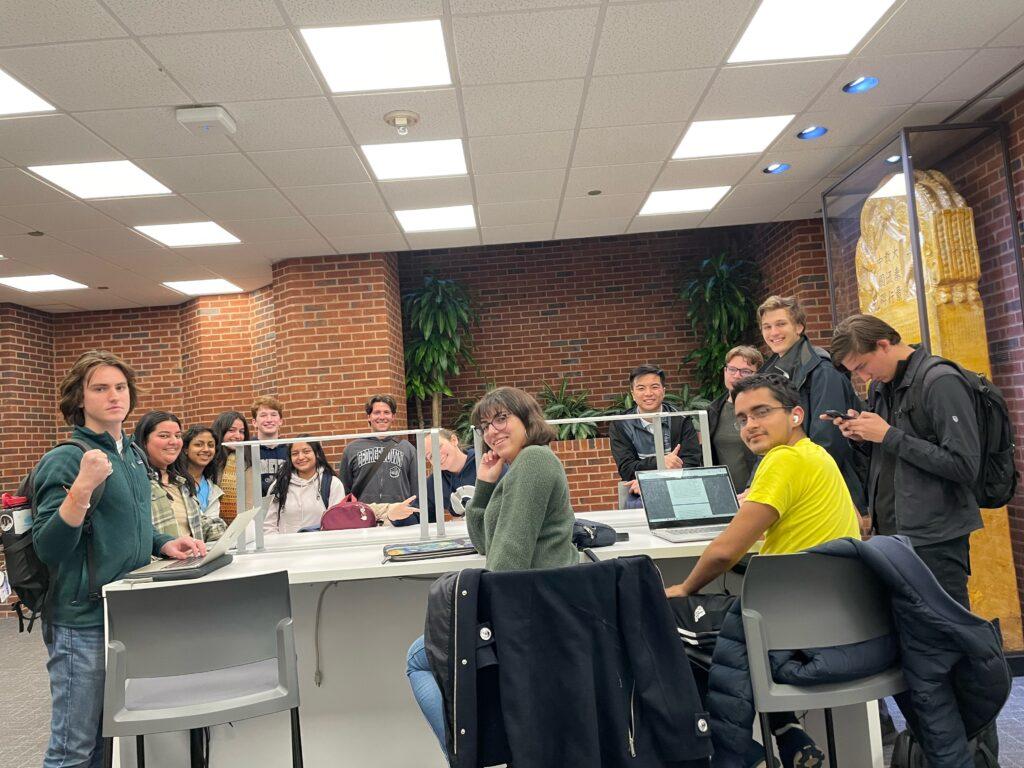The Georgetown University Student Association (GUSA) Senate approved an act in its March 13 meeting submitting a referendum for students to vote on raising the student activity fee, an extra charge each student must pay in addition to their current cost of attendance, in the coming GUSA election.
The current student activity fee is $179 for the academic year but will already be increasing to $185 due to the tuition rise increase taking effect next year, Provost Robert Groves and Executive Vice President for Health Sciences Edward Healton announced in a Feb. 21 email to students. In the April referendum, students will vote on whether to further raise each student’s contribution to the student activity fund by $45, from $185 to $230.
GUSA Finance and Appropriations Committee Chair John DiPierri (SFS ’25) and GUSA Senate Speaker Manahal Fazal (SFS ’24) introduced the resolution, which GUSA Policy and Advocacy Committee Chair Joshua Bernard-Pearl (SFS ’25) co-sponsored. The referendum will pass if a majority of voters are in support of the fee increase and the voter total is over 25%.
DiPierri said the increased student fee contribution will allow GUSA to better match clubs’ funding requests, as it will give GUSA an extra $296,000 to distribute to clubs for a total of $1.58 million.
“Requests for clubs and advisory boards always exceed the amount of money that we can give,” DiPierri said at the meeting. “The problem is that it’s getting to a point where the requests are so high that the current amount per student, we can’t realistically provide what these clubs need.”

DiPierri said he advocated for a referendum instead of a petition to the administration because the administration would be unlikely to respond to the latter.
“Georgetown is very much behind the ball as compared to other universities and their contributions to their student activities fees and their contributions to student life,” DiPierri said. “It behooves us to put in a referendum and say, ‘This is what we want for our students. This is how we’re going to make Georgetown a better place.’”
GUSA Senator Dylan Davis (CAS ’26) said GUSA should make its best effort to get funding from administration before asking for students to pay more.
“We’re demanding a $45 increase per student, which presents possibly an undue burden,” Davis said at the meeting. “I feel like we should try to leverage as much as possible and make that increase as narrowly tailored as possible.”
DiPierri said GUSA had exhausted all other options for funding the student activity fee before proposing the referendum.
“The only reason this referendum is coming to us is because this is the only option we have left,” DiPierri said at the meeting. “We’ve been in these conversations for three years now, and there’s been no movement on the administration’s part to support student life in the way that we see fit.”
Senator Andrew Wong (SFS ’26) opposed the act, saying students already have to deal with other financial challenges like next year’s increased tuition.
“People are struggling with everything from groceries to gas, now tuition’s getting hiked,” Wong said at the meeting. “I don’t think slapping a $45 fee increase on students is the way to go here.”
As the debate became more heated, the senate limited speaking time to one minute per senator. Nevertheless, the meeting went past its allotted time and the senate had to move out of its meeting room and relocate to the Intercultural Center’s first floor elevator lobby to continue their debate.
Senator Max Massick (CAS ’24) said the referendum will hold little weight because it is unlikely that enough students will turn out and vote.
“We are never going to get 25% of the population to actually vote, whether they vote in favor or against, so it has no effect,” Massick said at the meeting. “It might get people to think about it, and so we might as well show that GUSA can do something and have a referendum because hey, I might be wrong.”
After one and a half hours of debate, the final vote saw the senate approve the act of the referendum, with 18 in favor and two — Davis and Senator George Currie (CAS ’26) — opposing. The senate also scheduled an extra meeting for March 19 to discuss tabled agenda items that the group was unable to get to because of the referendum debate.
DiPerri said the decision on the student activity fee is in the hands of the students.
“The only agency we have is over ourselves and our tuition dollars,” DiPierri said. “If the student body determines that our tuition dollars are best spent with a $45 increase in student activities, well then, so be it.”





















